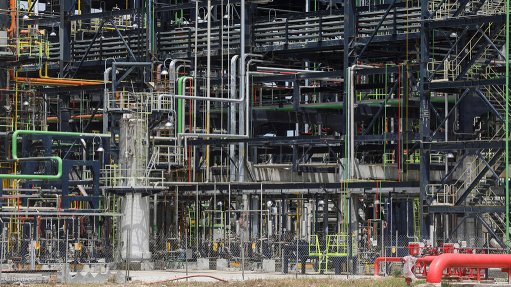Driving a new design: Addressing the cooling needs of the modern data centre
This article has been supplied.
By: Ben Selier - VP of Secure Power for Anglophone Africa at Schneider Electric
The rise in hardware density in data centres is gaining speed and is largely driven by the demands of Artificial Intelligence (AI) and Machine Learning (ML), requiring more powerful servers and specialised hardware. Kilowatt demands per rack can reach 18kW or more, necessitating increased cooling and larger real estate, all of which adds to costs.
As data centres move towards higher density GPU-based systems, kilowatt demands per rack can soar with cabinets now running up to 40kW, compared to the previous 3-7kW. The resultant increase in concentrated heat load is like operating a heater inside the data centre, putting a huge amount of stress on the cooling systems.
One of the primary challenges that arises is that traditional cooling methods are proving inadequate. While it is possible to cool the high-density loads with air, the infrastructure required becomes almost impossible. As such, air cooling is reaching its limits, as it requires producing a huge amount of slow-moving air, which is very difficult to do in the small spaces of a data centre.
Manage airflow better
This has led to the use of containments and wind walls to better manage the airflow inside the data centre in the latest designs, driven by the need to move beyond air cooling, as it is inefficient and costly to cool these high-density loads with air.
Liquid cooling options, such as cooling the chip, back door cooling and immersion cooling, are better and more sustainable options for the current high-density loads. Additionally, liquid cooling solutions are necessary to achieve sustainable or “green” AI, as air cooling will not be able to provide the required efficiency.
Ultimately, liquid cooling provides a more efficient solution for managing thermal output in high-density data centres, as water is about 10 times more effective than air at removing heat. Liquid cooling also targets heat removal directly from equipment, such as the chips and GPUs, unlike air cooling, which cools the entire room - including less critical areas - resulting in unnecessary energy waste.
Increase in power demands
The increased power demands due to AI necessitate a significantly larger number of chillers and air-handling units. As these increase, so does the need to expand the UPS, battery and generator capacity. This means that while the floor space demand for data halls might become smaller due to increased density, the demands of AI will offset this.
Therefore, the key issue is responsible AI and responsible big data. It is easy to say we need these technologies and start building data centres, but we often overlook their environmental impact and the design considerations involved. The cost of AI becomes a significant concern when we do not factor in these aspects.
When we start building large data centres with significant loads, we need to adopt new design approaches rather than rely on historical methods. The responsibility for this is clear – responsible AI is not just about using the latest technology but about making thoughtful, sustainable choices.
Article Enquiry
Email Article
Save Article
Feedback
To advertise email advertising@creamermedia.co.za or click here
Press Office
Announcements
What's On
Subscribe to improve your user experience...
Option 1 (equivalent of R125 a month):
Receive a weekly copy of Creamer Media's Engineering News & Mining Weekly magazine
(print copy for those in South Africa and e-magazine for those outside of South Africa)
Receive daily email newsletters
Access to full search results
Access archive of magazine back copies
Access to Projects in Progress
Access to ONE Research Report of your choice in PDF format
Option 2 (equivalent of R375 a month):
All benefits from Option 1
PLUS
Access to Creamer Media's Research Channel Africa for ALL Research Reports, in PDF format, on various industrial and mining sectors
including Electricity; Water; Energy Transition; Hydrogen; Roads, Rail and Ports; Coal; Gold; Platinum; Battery Metals; etc.
Already a subscriber?
Forgotten your password?
Receive weekly copy of Creamer Media's Engineering News & Mining Weekly magazine (print copy for those in South Africa and e-magazine for those outside of South Africa)
➕
Recieve daily email newsletters
➕
Access to full search results
➕
Access archive of magazine back copies
➕
Access to Projects in Progress
➕
Access to ONE Research Report of your choice in PDF format
RESEARCH CHANNEL AFRICA
R4500 (equivalent of R375 a month)
SUBSCRIBEAll benefits from Option 1
➕
Access to Creamer Media's Research Channel Africa for ALL Research Reports on various industrial and mining sectors, in PDF format, including on:
Electricity
➕
Water
➕
Energy Transition
➕
Hydrogen
➕
Roads, Rail and Ports
➕
Coal
➕
Gold
➕
Platinum
➕
Battery Metals
➕
etc.
Receive all benefits from Option 1 or Option 2 delivered to numerous people at your company
➕
Multiple User names and Passwords for simultaneous log-ins
➕
Intranet integration access to all in your organisation





















